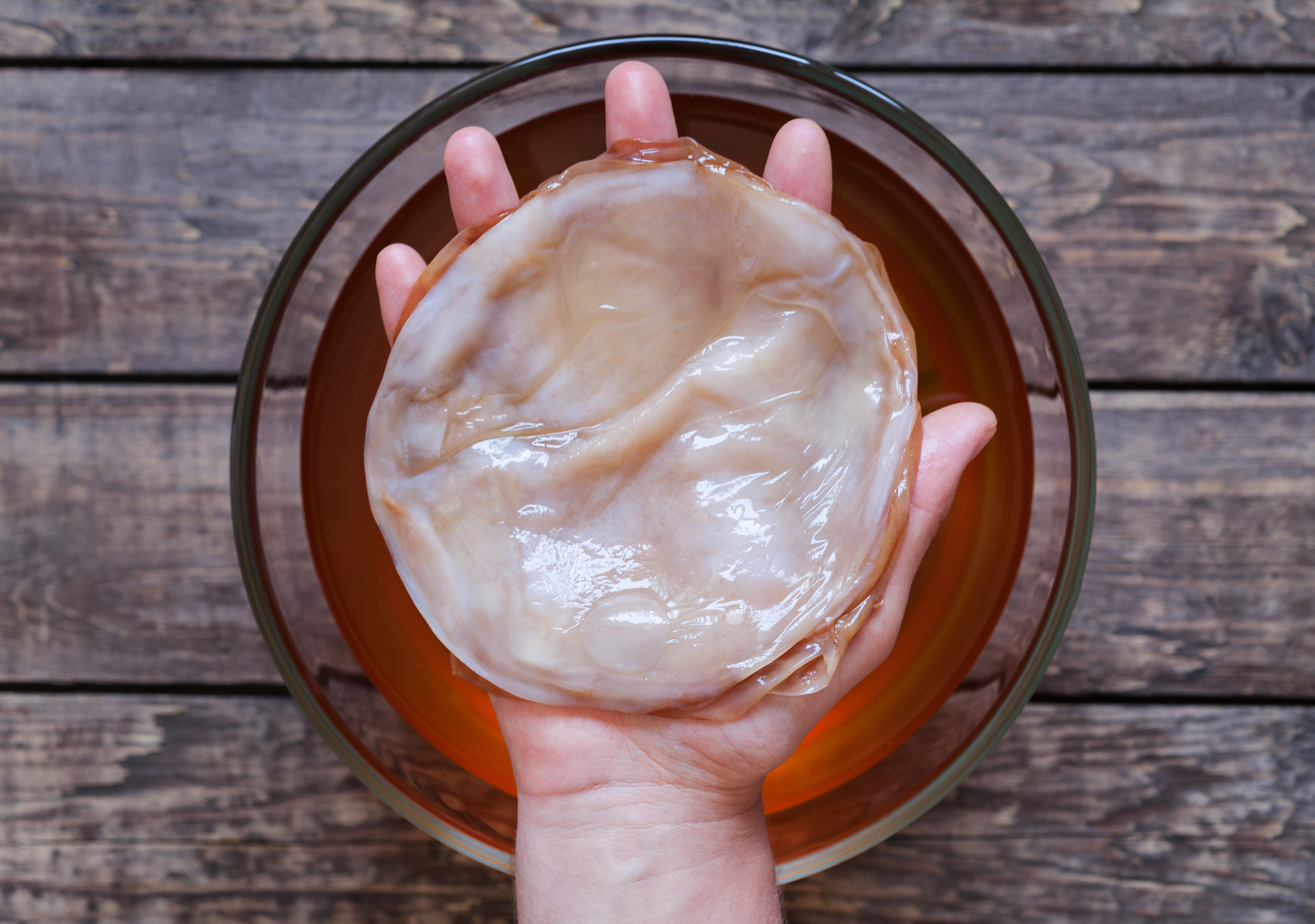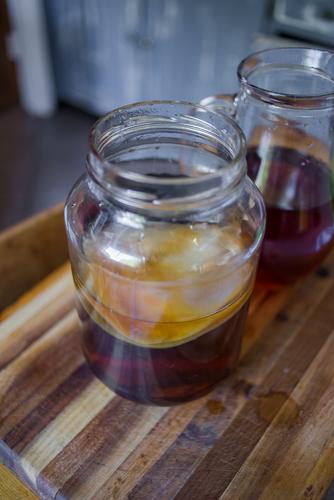The PR sounds like, finally, we have a cure-all. No, it's not homeopathy or chiropractic manipulation, but a fermented tea product — kombucha. Kombucha was originally a Chinese product with about 2,000 years of history. The Chinese called it the "elixir of life." Unfortunately, they didn't collect any data on its benefits. However, that hasn't stopped enthusiasts from promoting it for, well, just about anything. Just a few of the claims include:
- detoxifies the liver and helps prevent cancer
- prevents and treats "all forms of arthritis"
- aids digestion and gut health, which in turn helps with fibromyalgia and depression [?]
- strengthens the immune system since it is loaded with antioxidants
So what is this miraculous elixir? It's sweetened tea that's been fermented by a combination of bacteria and yeasts acting together to use the sugar in the tea (the sugar is used by these microorganisms to make energy). Either black or green tea can be used as a starter for kambucha. Supposedly this symbiosis produces beneficial acids, enzymes and what have you. Oh, and did I mention that one of the results of fermentation is alcohol? The exact strains of bacteria and yeast can vary, depending on what one starts with. The "mother" or initial plaque of the symbiotic organisms (shown below)
will determine exactly what occurs and what metabolites are produced, since different bacteria or yeast will produce different metabolites.
You can get commercially-produced kombucha tea at a health food store, or you can peruse the internet for do-it-yourself instructions and make your own. So what are the plusses and minuses of kombucha? On the positive side — if you like it, drink it in moderation, but don't expect any detoxifying miracles. But a possible negative is contamination of the home-brewed variety with pathogenic bacteria, which certainly won't detoxify anything. If you make your own, store it in the refrigerator. Commercial varieties are more likely to be pasteurized, so the microorganisms are not alive.
And if you swallow the marketing hype, please contact me — I have a bridge to sell you!





